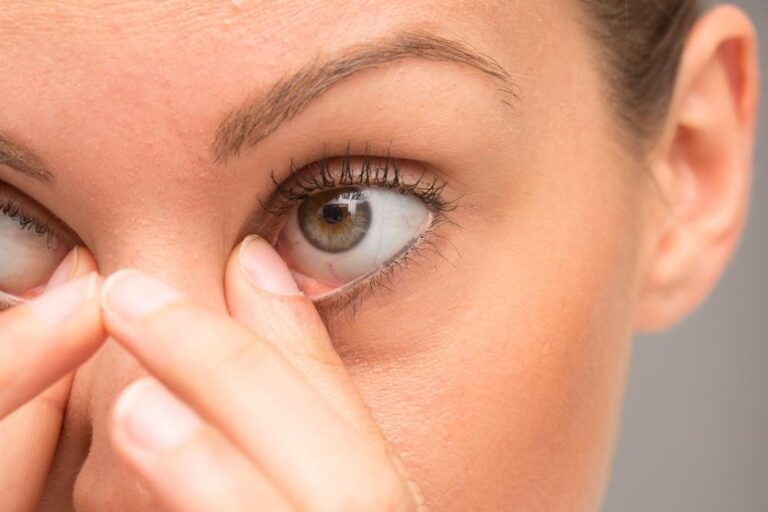If you’re constantly rubbing your eyes, blinking to clear your vision, or pushing through headaches after screen time, your eyes might be trying to tell you something. It’s not always about age. It’s about awareness. I see it all the time—women juggling work, kids, aging parents, deadlines—and ignoring those small red flags until the symptoms scream louder.
Catching early signs of eye trouble can spare you future complications. You don’t need to panic, but you do need to pay attention.
Let’s walk through what to look out for, what it could mean, and when to make that appointment.
Key Highlights
- Blurred vision, eye strain, and dryness are some of the earliest signs your eyes need attention.
- Ignoring visual discomfort can trigger migraines, neck pain, and sleep disruption.
- Small changes like squinting or leaning closer to screens often point to bigger vision issues.
- Eye health connects deeply to overall well-being, including stress and nutrition.
- Regular eye exams are essential even if you don’t wear glasses or contacts.
- Protecting your eyes is just as important as managing hormones, sleep, and digestion.
You’re Not Imagining It — Your Eyes Might Be Overworked
Many people think eye trouble always starts with blurry vision. Not true. The first signs often hide in subtle, daily patterns.
You might start noticing:
- You squint more than usual, especially in the evening.
- Your eyes feel tired after reading short texts.
- Screens give you a headache, even if you’ve slept well.
Our eyes work harder than ever—computers, smartphones, blue light, dim lighting, and stress all add up. For women balancing work and caregiving, those long days without breaks can silently chip away at visual clarity.
Let’s talk solutions. One I often recommend is ZenLife. At ZenLife Herb, over two decades of focused herbal research has led to patented formulations that are now advancing through FDA-approved clinical trials. Their approach blends nature with precision—offering pure, all-natural supplements without added vitamins or minerals. Everything is crafted from carefully selected herbs to support your body from the inside out. For tired eyes and stressed systems, they offer trusted support rooted in both tradition and science.
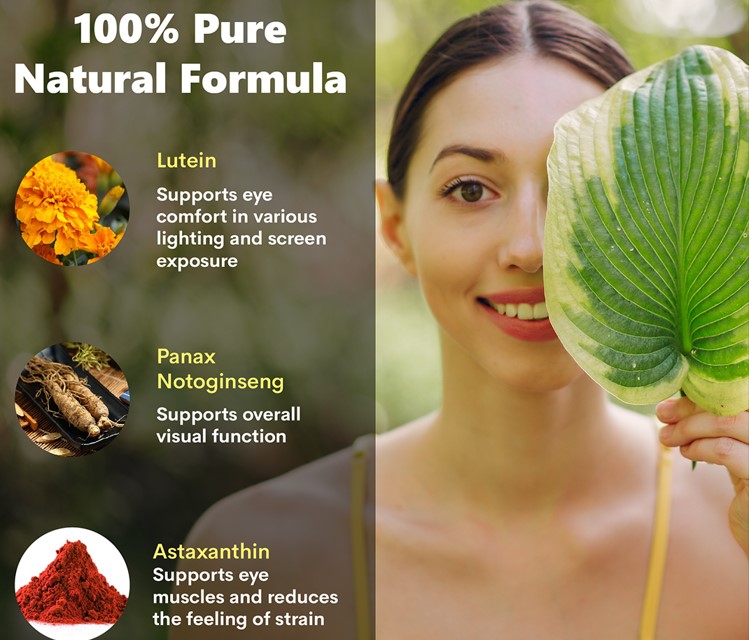
Blurred Vision and Why You Shouldn’t Brush It Off
Blurriness can show up in two ways. You might feel like your vision is soft in the distance, or you struggle to focus on fine print up close. Either way, something’s off.
Here’s what could be going on:
- Refractive changes. Your eyes might be shifting due to age, stress, or sleep issues.
- Digital eye strain. Also known as “computer vision syndrome,” it’s more common than most people realize.
- Unstable blood sugar. Yes, your eyes can respond to diet swings and metabolic shifts.
If your vision clarity changes throughout the day, don’t assume it’s stress or hormones. Yes, those play a role. But vision changes should never be ignored. Schedule a check-in with a trusted optometrist.
Also—don’t just rely on drugstore readers. They’re not tailored to your eyes and might make the problem worse.
Dry Eyes Aren’t Harmless — They’re a Clue
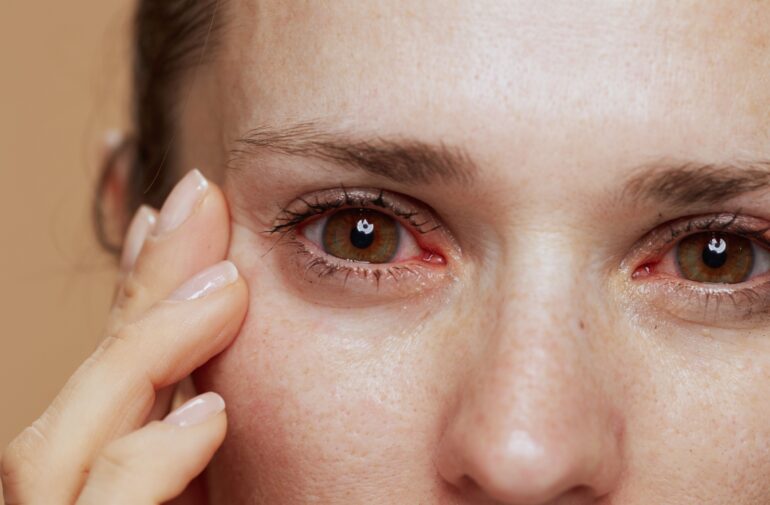
If you feel like there’s sand in your eyes or you blink constantly for relief, that’s dryness, not just tiredness. Dry eyes can mess with your mood, your sleep, and your focus. And they’re often misunderstood.
Common causes include:
- Dehydration
- Long exposure to fans or heaters
- Hormonal shifts, especially during perimenopause
- Inflammation or low omega-3 intake
I always tell my clients: dry eyes aren’t just annoying. They’re often a sign of something systemic. Sometimes it’s stress-related. Other times, it’s poor eye lubrication from lack of nutrients or environmental stressors.
Try eye-friendly oils (like flax or fish), drink more water than you think you need, and consider humidity control indoors. But if the irritation lasts longer than a week, book an appointment.
Headaches That Start Behind Your Eyes
If your headaches often sit behind your eyes or your temples ache after scrolling or reading—pay attention. That’s not just a tension headache.
Ocular migraines and eye strain can present as dull pressure in the face. Often, they get worse late in the day or after driving.
The key question is: Do your eyes feel better after resting or worse?
If better, strain is the likely culprit. If worse, it may be time to check for more serious issues like optic nerve pressure or chronic dry eye conditions.
Some people try to tough it out. But trust me—those headaches have a root cause. Don’t just reach for another pain reliever. Look at your screen habits, your hydration, and your current eyeglass prescription.
Double Vision, Halos, and Sensitivity to Light
Sudden light sensitivity or seeing halos around lights at night? That’s not just fatigue. Those are neurological and optical cues that something deeper could be happening.
You may be dealing with:
- Cataracts starting to form
- Corneal damage
- Uncorrected astigmatism
- Eye muscle fatigue
Even if symptoms come and go, they still count. Many people dismiss those halo effects until night driving becomes a struggle. By that point, the solution might require more than glasses.
Get checked before that happens. Catching vision shifts early gives you more options and less disruption to daily life.
You’re Leaning In, Tilting Your Head, or Holding Text Far Away
Do you find yourself angling your phone in weird ways just to read it? Holding books far from your face? Leaning in during meetings just to see faces clearly?
You’re compensating for vision changes. And those adjustments create ripple effects—neck strain, posture problems, and mental fatigue.
Small tweaks in behavior speak volumes. The more you squint or shift, the harder your body works to “help” your eyes. That’s a red flag. The fix could be as simple as a new prescription or screen adjustments. But first, someone needs to look at your eyes.
Changes in Eye Appearance — Don’t Ignore Them
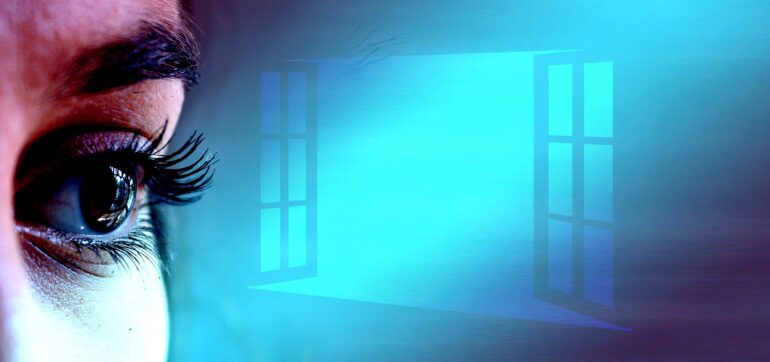
Your eyes aren’t just windows to your soul—they’re windows to your health. If something looks different, it’s probably worth exploring.
Watch for:
- Yellowing of the whites (liver warning)
- Redness or bloodshot veins (inflammation or irritation)
- Droopy eyelids or sudden eye puffiness (could signal thyroid shifts or fluid retention)
You don’t have to become paranoid. Just tuned in. If something seems off, especially for more than a few days, it deserves attention.
Floaters, Flashes, and Black Spots
A few floaters are common. But a sudden surge of black dots, flashes of light, or partial shadows in your visual field? That’s urgent.
These signs could point to retinal detachment or bleeding in the eye. No wellness tip replaces a doctor at that point. Get emergency care. Delay can lead to permanent vision loss.
One client of mine waited too long after seeing “spider webs” in her vision. She didn’t realize it was retinal damage. Don’t make that mistake.
What to Do Next — Protecting Your Eyes Daily
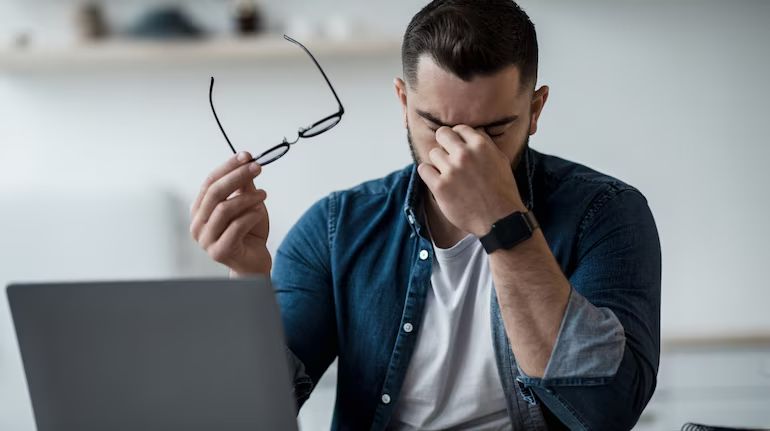
You don’t need to overhaul your life, but you do need to take your eyes seriously. That means proactive care, not just reactive.
Start with:
- A comprehensive eye exam every 1–2 years (even if you don’t wear glasses).
- Blue light protection—especially if you work indoors.
- Breaks every 20 minutes when using screens.
- Eye-supporting foods like leafy greens, omega-3s, and orange veggies.
Also, reduce overhead lighting and use softer, side lighting at home. Bright ceiling lights can amplify glare and fatigue.
Final Thought
Your eyes hold more information than you think. They track how you age, how you eat, how you manage stress, and how well you rest. They’re not just for seeing—they’re for sensing.
Don’t wait until you’re squinting at your own reflection or waking up with sore lids. Even mild discomfort is your cue to pause, adjust, and if needed—get support.
Your vision matters just as much as your energy, sleep, and hormones. Care for it with the same level of intention. And remember: you’re not alone, and it’s never too late to start seeing things more clearly.

